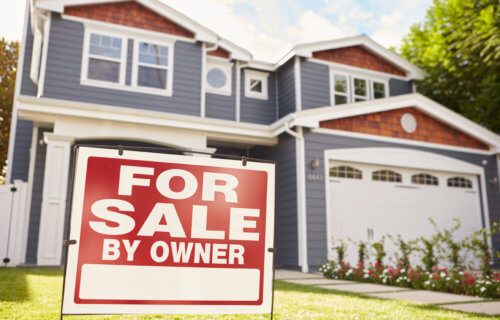TUCSON, Ariz. — It’s the “big promise” of owning a home in the United States: once you pay the mortgage you can sell it for a profit. For seniors, this usually gives them a healthy nest egg to live on in retirement. There’s one big problem with this American dream — what if no one wants to buy your home? A new study predicts there could be up to 15 million homes which go unsold or leave Americans taking major financial losses on their lifelong investments in coming decades.
Professor Arthur Nelson from the University of Arizona says the biggest issue facing seniors are younger generations who are unwilling or unable to buy these properties. Nelson’s prediction finds millions of millennials and members of Generation Z may not be able to afford home ownership. Younger Americans may also continue to opt for smaller homes closer to urban areas, shunning the commute from the suburbs.
“What if you pay off your mortgage over 30 years… and nobody buys the home?” the professor of urban planning and real estate development asks in a media release.
Although many seniors will be able to find buyers, the study predicts it will become increasingly difficult for baby boomers and members of Generation X living in smaller, suburban, and slow-growing markets.
The growing mismatch in the housing market
Using data from the U.S. Census and Harvard University’s studies on housing trends, Nelson maps out how the age of homeowners may change between now and 2038. Those projections reveal there may be fewer homeowners under 65 in 2038 than in 2018. The vast majority of Americans over 65 however, will own a home in 2038.
“There’s the mismatch – if those over 65 unload their homes, and those under 65 aren’t buying them, what happens to those homes?” the professor asks.
The study author cautions that the U.S. housing market is going to keep moving, but his projections show a growing deficit leaving seniors unable to fund their retirements. The report estimates this mismatch will occur gradually, with about 500,000 to one million homes going unsold each year.
“The people who own homes now in thousands of declining communities may simply have to walk away from them,” Nelson warns.
How can a housing market crisis be prevented?
If younger generations don’t want to live in smaller markets, could homeowners find a buyer in Uncle Sam? The study suggests the U.S. government would be wise to purchase homes which become unsellable. The professor says seniors who can’t turn a profit on valuable property may end up on federal assistance programs when they lose their home. The cost of aiding seniors then also impacts all taxpayers, who take on this burden for years and years.
“If you have millions of seniors spread all across the landscape costing a fortune to serve, we might be better off finding ways to induce many to sell their homes,” Nelson explains. “We could actually then save potentially billions in public money that would otherwise be used to serve people in very distant and remote locations.”
The study notes that the Federal Emergency Management Agency already assists homeowners that are or will likely suffer damage from natural disasters. Nelson also suggests programs which find seniors younger tenants to move into their homes. These single-family homes are then converted into multiple units and housemates can act as caregivers.
“We’re going to wake up in 2025 – give or take a few years – to realize that millions of seniors can’t get out of their homes and that it’s going to get worse in to the 2030s,” Nelson adds. “We must start doing things now to reduce the coming shock of too many seniors trying to sell their homes to too few younger buyers.”
The study appears in the Journal of Comparative Urban Land and Policy.
